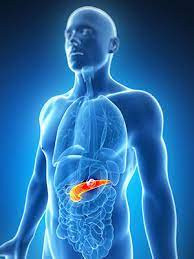Definition
Colorectal cancer, or colon cancer, is a condition characterized by the uncontrolled growth of cells in the rectum or colon, which is the final part of the digestive tract. The rectum is a passage that connects the large intestine to the anus. The uncontrolled cell growth may initially manifest as polyps and lumps of benign cells. Over time, some polyps can transform into malignant cells, leading to cancer.
Colorectal cancer ranks as the third most common malignancy in both men and women, and it is the second deadliest form of cancer. In Indonesia, the incidence of colorectal cancer is reported to be 12.8 cases per 100,000 adults, with a mortality rate of approximately 9.5% in all cases. The incidence and mortality rates tend to increase in adults older than 50.
Causes
The exact cause of the mutation of healthy cells in the colon and rectum, leading to colorectal cancer, is not precisely known. However, in general terms, healthy cells in the colon can undergo mutations that result in uncontrolled growth. Normal cells have a lifespan and are programmed to die, but when they grow unnaturally, they can form polyps. While polyps are typically benign, if left unmanaged, they can become cancerous.
When a cell's DNA is damaged and becomes cancerous, it undergoes continuous replication and mutation and does not undergo programmed cell death. These cells continue to grow even when not needed, and a tumor is formed as they accumulate.
Over time, growing and mutating cancer cells can invade and damage surrounding healthy tissues. Cancer cells beyond the colon and rectum can also spread to other tissues or organs through the bloodstream or lymph vessels, giving rise to new tumors. The presence of cancer cells in distant organs indicates an advanced stage of the disease, often referred to as metastasis.
Risk Factors
Several factors can increase the risk of colorectal cancer. These include:
- The age is more than 50 years old, although there is an increase in cases among those under 50.
- History of polyp or colon cancer.
- History of radiation therapy for cancer in the abdominal area.
- Inflammatory bowel disease like Crohn's disease or ulcerative colitis.
- Hereditary genetic syndromes, such as Lynch syndrome and familial adenomatous polyposis.
- History of colorectal cancer in the family.
- High-fat, low-fiber, and regular red or processed meat consumption.
- Sedentary lifestyle and inactive life.
- Smoking habits and consuming alcohol.
- Obesity.
- Diabetes mellitus type 2.
Symptoms
Colorectal cancer is categorized into several stages:
- Stage 0: In this stage, abnormal cells are found only in the innermost layer of the colon or rectum.
- Stage 1: Cancer has spread to the mucosal or muscle layer of the colon or rectum.
- Stage 2: Cancer has spread into the colon wall, rectum, or the tissues around it.
- Stage 3: Cancerous cells have moved into the lymph nodes but have not spread to other organs yet.
- Stage 4: This is the advanced and final stage, where the cancer has spread into other organs, marking the most serious and advanced stage of the disease.
In the early stages of colorectal cancer, symptoms may not be apparent. However, if symptoms do occur, common ones include:
- Constipation
- Diarrhea
- Changes in the color or shape of stool, including the presence of blood
- Rectal bleeding
- Excessive flatulence
- Bloating in the abdomen
- Cramps or abdominal pain
- Vomiting
- Excessive fatigue or unexplained weakness
- Significant weight loss
These symptoms typically persist for 2 weeks to 1 month. The specific symptoms that manifest can depend on the size and location of the cancer. If cancer has spread to other organs, additional symptoms may appear based on the affected organs.
Diagnosis
When assessing a patient for colorectal cancer, the doctor gathers detailed information about the symptoms. The doctor takes a comprehensive medical history, covering the patient's previous diseases and treatments. The doctor also explores the patient's family history, particularly regarding colorectal cancer or related conditions. The doctor conducts a thorough physical examination. The doctor may recommend advanced examinations if there are indications for further investigation, such as concerning findings or high-risk factors.
Laboratorium examination
As part of the diagnostic process for colorectal cancer, the doctor may recommend blood tests to assess your health comprehensively. This may include a complete blood test, which provides information about various blood components and kidney and liver function assessments. Specific antigens, such as Carcinoembryonic Antigen (CEA), may also be measured. CEA is a chemical compound that is sometimes produced by colorectal cancer cells.
A fecal or stool examination may be conducted, especially if visible blood is present in the stool or if microscopic examination reveals abnormalities.
Imaging
- Barium enema
This imaging method utilizes X-rays with a barium contrast. The contrast substance is introduced into the intestine, highlighting the contours of the colon to provide a detailed image.
- CT scan
Doctors may recommend a CT scan of the abdomen, waist, and chest to determine the stage of cancer. In stage IV, where cancerous cells have spread to other organs, this imaging technique helps assess the extent of metastasis.
- Colonoscopy
A colonoscopy uses a long tube, bending, and a camera installed to monitor your rectum and colon. The doctor can take tissue samples (biopsies) for network analysis if the monitor shows a suspicious area. This check has a sensitivity of around 94.7%.
Management
The choice of therapy for colorectal cancer depends on factors such as the cancer's location, stage, and the patient's overall condition. Several management options include surgery, radiotherapy, chemotherapy, and immunotherapy.
Surgery:
This option is preferred for early-stage and small-sized cancers. If the cancer is small, it can be removed during a colonoscopy. If a colonoscopy is challenging, a laparoscopy may be performed. In laparoscopy, small incisions are made in the abdomen to insert tools equipped with cameras, allowing the surgeon to visualize and excise the cancer in the colon or rectum.
Chemotherapy:
Chemotherapy involves the use of specific medications to destroy cancer cells and reduce the risk of recurrence. It is administered before surgery to shrink larger tumors, after significant surgical procedures, in cases where cancer cells have spread to lymph nodes, and in stage 4 cancer. It may be combined with radiotherapy to alleviate symptoms in the latter case.
Radiotherapy:
This therapy employs X-rays and protons to kill cancer cells and reduce the size of the tumor, making it easier to excise during surgery. Radiotherapy can be combined with chemotherapy if surgical removal is challenging.
Immunotherapy:
Like chemotherapy, immunotherapy uses a combination of medications, but it leverages the immune system to combat cancer cells. This therapy is typically chosen for end-stage cancer cases.
Complications
Complications that can arise if colon cancer is not treated properly include:
- Colon Blockage: The growing size of the tumor can lead to the blockage of the colon, causing obstruction and impairing normal bowel function.
- Metastasis: If left untreated, colon cancer has the potential to spread to other organs, leading to more advanced and challenging-to-treat stages.
- Recurrence: Inadequate eradication of cancer cells may result in the recurrence of the disease, necessitating further treatment.
While colorectal cancer is typically associated with advanced age, there is a concerning trend of increasing cases in individuals under 50 years old. Moreover, there has been a rise in the mortality rate among patients younger than 50.
Prevention
Prevention of colorectal cancer involves routine colorectal screening, recommended from the age of 45. Since early-stage cancer often lacks noticeable symptoms, regular screening is instrumental in detecting abnormal cell growth and tissue changes in the colon and rectum.
In addition to screening, individuals can reduce risk by adopting healthy lifestyle practices. These include consuming a diet rich in fruits and vegetables, avoiding excessive alcohol consumption and smoking, exercising regularly, and maintaining an ideal body weight.
When to see a doctor?
If you have the risk factors and symptoms listed above and if the symptoms have persisted long and are more worrying, you should consult the doctor to be examined further and screened.
- dr Hanifa Rahma
Centers for Disease Control and Prevention (2021). Colorectal (Colon) Cancer.
Mayo Clinic (2021). Diseases & Conditions. Colon Cancer.
Wint, C., & Nelson, J. Healthline (2020). Colorectal (Colon) Cancer.
Putranto, A., & Julistian. (2019). Risk Factors of Colorectal Carcinoma Incidence in Young Adults: A Meta-analysis. The New Ropanasuri Journal of Surgery, 4(1), pp. 1–6.












